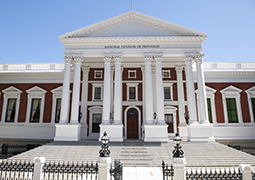
The National Council of Provinces (NCOP) is hosting a two-day introspective seminar – Three Spheres Planning: Delineating Key Priorities for Consideration and Implementation during the final year of the sixth dispensation. The seminar started yesterday.
Delivering opening remarks for the occasion, the Chairperson of the NCOP, Mr Amos Masondo, said cross-cutting legislative and government programmes aimed at unlocking opportunities for socio-economic development have created the need for such a seminar. “It is worth noting that this session seeks to promote co-operation in planning and implementation processes, especially in light of the fact that we are in the penultimate year of the sixth administration.”
In the face of this reality, parliaments have a responsibility to contribute to the processes fast-tracking the transformation of South African society. “They ought to do so in a manner which promotes co-operation, co-ordination and collaboration as the key ingredients for ensuring accountable, coherent and effective government,” he continued.
Mr Masondo emphasised that Chapter 3 of the Constitution mandates the NCOP to provide effective, transparent, coherent government in an atmosphere of mutual trust and good faith. Of the two houses, the NCOP is the one that is at the cutting edge of the collaboration between all three spheres of government, he said.
This is based on its inter-governmental mandate that enable it to bring all three spheres of government under one roof. Delineating areas that needed special attention, he stated that whatever they plan to do, the NCOP must ensure that it promotes public accountability and a government that responds to the needs of the people. In his view, one way of achieving this “is by following up on the commitments that government itself has made and will be resourcing in fighting corruption, reducing unemployment, loadshedding and crime.”
Parliament should focus on “issues that have been identified as requiring national effort, so that through our integrated oversight approach we can be able to support the goals that government has set itself in this regard,” Mr Masondo explained.
The Deputy Chairperson of the NCOP, Ms Sylvia Lucas, then stood up and added that the Constitution further requires parliamentary oversight process to ensure that government adhere to the values of co-operative government. “It must at all material times, take into account the circumstances, material interests and budget of other government and organs of state, in order to ensure sustained advances towards realising the ideals of our transformation agenda are achieved.”
Failure in this regard points to the lack of “horizontal integration between activities of various government departments and lack of understanding of what integrated governmental relations means by both politicians and bureaucrats.” This failure explains the poor implementation of key policy priorities, such as the National Development Plan, Ms Lucas concluded.”
Abel Mputing
30 March 2023

